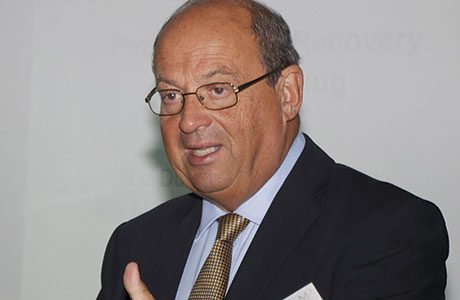
NOTHING is certain but uncertainty in the world of fuel retailing. While oil prices, following a fairly tumultuous period, appear to have stabilised, the UK general election, resulting in a surprise Conservative majority, has brought new unpredictability.
The post-election Budget to be revealed by Chancellor George Osborne on July 8, might answer many fuel retailers concerns – but could introduce new ones.
The Petrol Retailers Association has made efforts to raise a number of issues that could have serious implications for its members, and fuel duty is top of the list.
In the Coalition’s March Budget 2014, a commitment was made that fuel duty would remain frozen until August, but with a new fully Tory government in power, all bets are off.
Speculation has been rife that Osborne may increase fuel duty, but the PRA’s Brian Madderson has called for a cut.
He said: “Sale volumes have risen and we’re expecting them to produce between £800m and £1bn in additional revenue to the Treasury. We’re saying the Chancellor could use that to fund at least a 2p per litre reduction in fuel duty, which would give an added boost to the economy by helping business and households.”
A second issue causing concern is the Excise Payment Security System (EPSS). Though all independent retailers applying to HMRC had been approved for the scheme, the PRA chief said obtaining a Deferment Account Number for oil products had proved impossible.
“Revenue and Customs put out some pretty unfair and unacceptable conditions. One of the retailers took HMRC to the first tier tax tribunal at HM Courts of Justice on 1 May and we’re now waiting to hear the outcome of that.”
This is important, Brian said, because a positive result could have a favourable impact on a number of retailers.
“It could make a huge difference to their cash flow. It’s not a total game changer, but would be a massive improvement in their wellbeing.”
The day after the Budget, on 9 July, the PRA will be represented at a meeting with the Scottish Assessors Association, which will cover a number of issues relating to business rates, particularly the ‘tax on cash’ policy for through-the-wall cash machines, which Brian said puts an undue financial burden on retailers.
“We think this is completely unacceptable. We’re the only country in the world which is applying any sort of tax to cash, so we’re calling for the governments to immediately repeal these rates.
“We know of some local authorities that are now employing specialist firms to go out and log all through-the-wall ATMs in their area, check if they’re being rated separately and if not slam a ratings demand in. This can go back to the date of the last revaluation, so some of our members are being hit with a backdated rated demand of upwards of £15,000, which is not very amusing.”
Also under discussion will be the methodology for assessing the rates of forecourt shops, which are based on performance, rather than on area, like more typical convenience stores.
Brian said: “It is in effect a performance tax and we’ve got examples where a Tesco Express is paying 20% of the amount that a convenience store on a forecourt is paying, which is completely anti-competitive and unfair. It needs to be reconsidered.”













